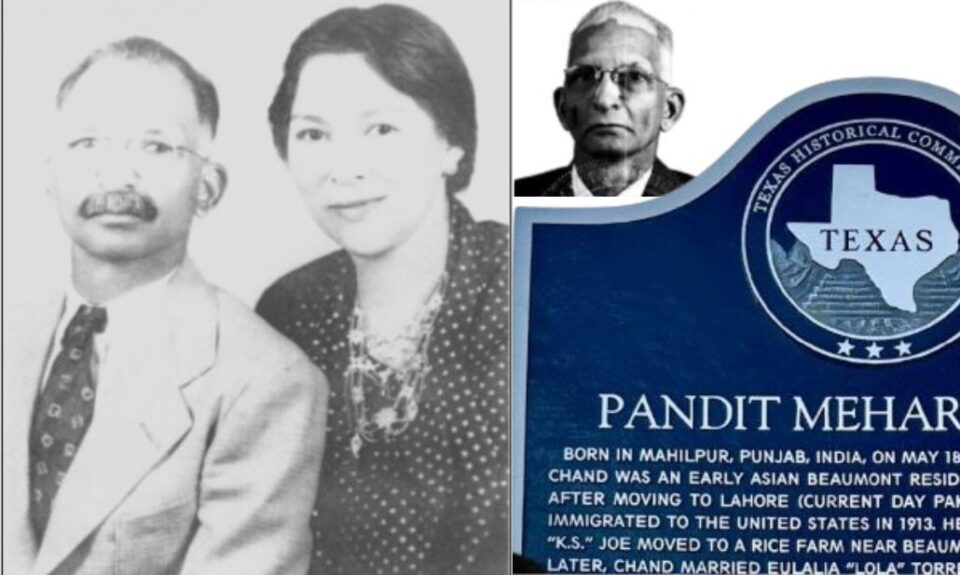Beaumont, TX, November 12, 2025: More than a century after he first made Beaumont his home, Pandit Mehar Chand — an early Indian immigrant who crossed oceans and endured racial barriers to build a life in Southeast Texas — is finally being honored with a Texas Historical Marker.
The Beaumont Heritage Society and the Jefferson County Historical Commission will host a public dedication ceremony on Saturday, November 15, at 10 a.m. to celebrate the unveiling of the marker, which stands at 911 Crockett Street — near the site of Chand’s former grocery store that once served Beaumont’s Black community.
Born on May 18, 1894, in Punjab, India, Mehar Chand was just 17 when he left his homeland after his mother’s death, yearning to find a place “where there was no lying and stealing.” His search took him across continents — from Italy and Argentina to Chile, Barbados, and Jamaica — before he reached Tampa, Florida, in 1913. Eventually, he journeyed west to California’s Imperial Valley, where many Indian farmworkers had settled, and later made his way to Beaumont in 1918.
At a time when xenophobia, anti-Hindu prejudice, and restrictive immigration laws made life extremely difficult for Asian immigrants, Chand dared to put down roots. He married Eulalia “Lola” Torres, a Mexican-American woman, in 1919 — a union that defied both racial and cultural boundaries in segregated Texas. Together, they raised eight children and became part of the fabric of their adopted community.
In 1921, Chand and a partner opened a small grocery store on Crockett Street. Their shop became a trusted local business serving the Black neighborhood, even as the Ku Klux Klan’s influence loomed large in Beaumont during the 1920s. Despite facing suspicion and hostility, Chand persisted — earning respect for his work ethic and quiet dignity.
Life, however, was not without hardship. In 1923, Chand was convicted of possessing stolen goods — a charge his supporters later said stemmed from misunderstanding and racial bias. The judge, acknowledging mitigating factors, spared him prison time and reduced his sentence to a $500 fine.
He applied for U.S. citizenship in 1922, only to be denied after the Supreme Court’s Bhagat Singh Thind decision ruled that Indians were ineligible for naturalization because they were not considered “white.” It wasn’t until 1937 that President Franklin D. Roosevelt granted him a full and unconditional pardon. Twelve years later, in 1949, Pandit Mehar Chand finally became a naturalized citizen — reportedly the first Indian American resident of Beaumont to do so.
Now, nearly half a century after his death in 1977, his story is being recognized as an important piece of Texas history.
The new Texas Historical Marker, approved through the Texas Historical Commission’s Under-Told Markers program, commemorates Chand’s courage and perseverance in the face of prejudice. It honors not only his personal journey but also the broader contributions of Indian immigrants who came to America during an era of exclusion and adversity.
Pandit Mehar Chand’s story reminds us that American history is woven from many threads. His life represents faith in the promise of this country, even when that promise seemed out of reach.
Information for this report was sourced from The Port Arthur News, the Beaumont Enterprise, and the Beaumont Heritage Society.
Cover photos credit: South Asian Digital Archive/Daniel E. Chand/ Beaumont Heritage Society/Instagram.



